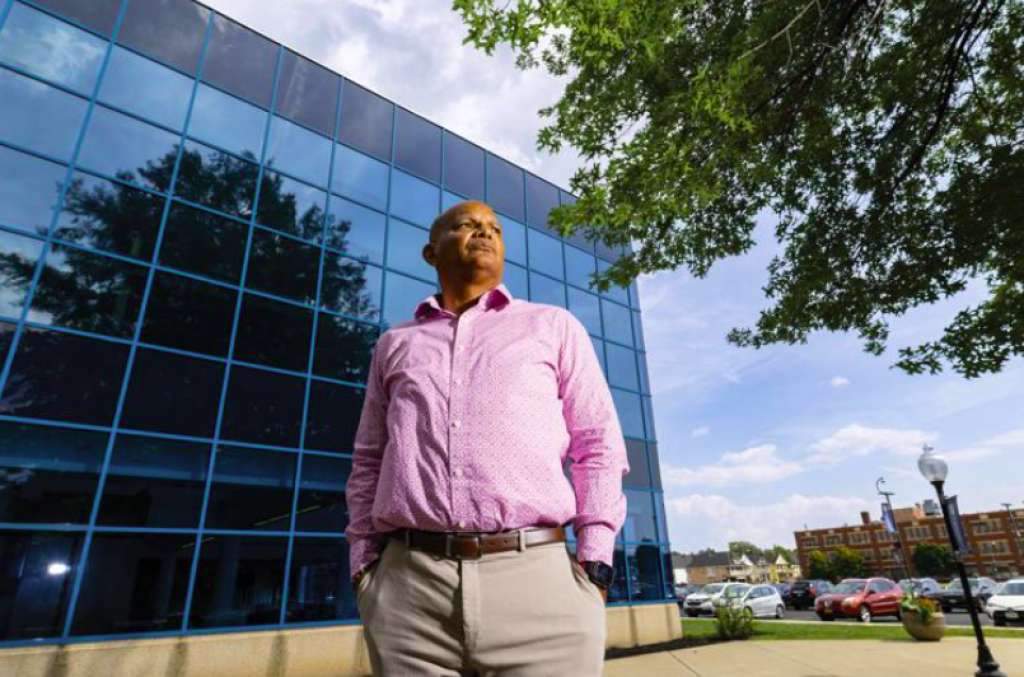Oct 6, 2024
Buffalo Spree: Transforming health on the East Side
(Originally seen in Buffalo Spree, October 2024 by Christine Pearl)
In August, the Centers for Disease Control and Prevention’s (CDC) Foundation, an independent nonprofit created by Congress to mobilize philanthropic and private-sector resources to support the CDC’s critical health protection work, awarded the Buffalo Center for Health Equity (BCHE), Best Self, and Erie County Department of Health Equity a $3.6 million grant. These groups will work together to assess mental health challenges for children in high risk communities by evaluating what services are being provided and how they can better help these children. The CDC Foundation’s focus has been on collaboration among different sectors, so this grant will fund these three entities effectively working together.
BCHE is a relatively new nonprofit committed to eliminating our region’s health inequities by addressing persistent racial, economic, and other social conditions in our community. Founded in 2019, the Center strives to eliminate health inequities holistically by combining policy analysis, research, advocacy, community engagement, and program development among its partner organizations in government, academia, and faith-based and community membership. The Center focuses on the social determinants of health: conditions in the environments where people are born, live, learn, work, play, worship, and age that affect a wide range of health and quality-of-life outcomes. Examples include safe housing, transportation, and neighborhoods; racism, discrimination, and violence; education, job opportunities, and income; nutritious food access and physical activity opportunities; and quality of air and water. These factors all impact human health, and addressing one or two while ignoring others will not create long-lasting, systemic changes.
Chronic disease is one of the major issues BCHE is tackling. Founder and CEO Pastor George Nicholas points to diabetes and hypertension as two diseases more common in their focused neighborhoods on the East Side. “Data shows us that if you’re African American and live in one of these communities, you’re more than 300 percent more likely to have one of these diseases than if you were white and live outside of that community. Those are alarming statistics.” Nicholas points out that all social determinants of health drive poor outcomes with these diseases.
Addressing racism and having meaningful conversations about race is part and parcel of the work BCHE does. “We are unapologetic about engaging in conversations about race, because structural and systemic racism, and historical racism, have been historical factors in the poor health outcomes for African Americans, not only in Western New York, but across the country,” explains Nicholas. “And we saw evidence of that, certainly when COVID hit, and the fact that if you had diabetes, hypertension, heart disease, or asthma, you would be more vulnerable to the virus, and those were the communities that had high numbers.”
BCHE has a core belief that five aspects of a family’s life have to change to improve health outcomes: every child needs to be at grade level in reading and math; housing must be quality and affordable; everyone should be operating at maximum level of employment; and healthy food and trusted primary care doctors must be accessible. These five factors are related, and all five need to happen to see large scale changes in health outcomes.
BCHE board member Dr. Joseph Fritz points out the great need for trusted, community-based medical professionals in these neighborhoods. When underserved communities have untreated health conditions, they often lead to more intensive and expensive treatments in hospitals, which are created to treat acute issues, not the underlying social determinants of health. Hospitals aren’t built to be value based and trusted management resources for chronic health issues. That’s why community engagement is a key component to BCHE’s plan.
Consultant Dr. Ana Stearns, MD adds that community engagement within BCHE and its partners is crucial to the organization’s success. Anyone with any educational background and work history is welcome to volunteer. “Reach out to us,” she says. “We have a lot of different initiatives and programs and we can link up people with their skills. There is always space for everyone to come. We want people to be inspired. Change happens when it’s everyone’s problem. We want to be proactive about that.”
What do the people working behind the scenes at BCHE want Western New Yorkers to know about their mission? “These are good people who have the odds stacked against them,” says Fritz. “Unfortunately, aid is often seen as ‘handouts that promote laziness.’ The real culprit is failure to address root causes. With a highly collaborative strategy that uses data to guide programs and connect resources to family needs, our goal is sustainable change that gradually reduces the need for special assistance. We are collectively better when the least of our brethren have an equitable opportunity to thrive in our economy.”
